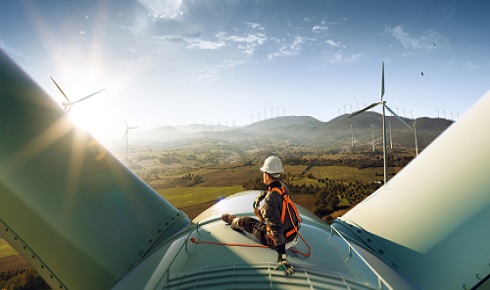Can we flatten the curve for climate change?

The first phase of recovery measures has focused on saving businesses and jobs, but the next phase must help save our environment
1st August 2020
This was supposed to be the Year of Climate Action. Delegates from around the world were expected in Glasgow this November to negotiate the global response to the climate emergency at the 26th UN Climate Change Conference of the Parties (COP26), until the COVID-19 pandemic necessitated its postponement by a year.
Despite the understandable focus on the public health emergency and its economic effects, the climate emergency remains high on the policy agenda. As fires rage through Siberia, governments are considering stimulus packages to rebuild economies upended by the virus. These economic measures provide a rare opportunity to make changes that will put us on track to a greener future. Such an outcome is far from assured, however.
Key elements of a green recovery include investment in projects that reduce or lock up greenhouse gas emissions and attaching environmental conditions to bailouts of polluting industries. The Committee on Climate Change has set out priority areas for investment, including improving the energy efficiency of buildings, nature restoration, and making changes that facilitate walking, cycling and remote working[1].
Buildings accounted for 18% of UK greenhouse gas emissions in 2019. Investments in tree planting, peatland restoration and green infrastructure would benefit biodiversity and flood prevention, and provide green spaces for people.
Furthermore, creating infrastructure to make it easy for people to walk and cycle safely would enhance public health. These are clear wins, providing jobs, reducing the burden on the climate and improving air quality as a co-benefit. However, with the UK off track for its 2050 net-zero target[1], much more is needed.
The signs that we will have a green recovery are not promising so far. In June Boris Johnson’s ‘build, build, build’ recovery speech focused on deregulation and construction. In July the chancellor, Rishi Sunak, announced measures to make homes and public sector buildings more energy efficient, but the £3bn provided is enough to address fewer than 3% of homes. Bailouts have been given indiscriminately to the UK’s airlines and the steel industry without any environmental requirements.
Greenpeace reports that the European Central Bank purchased more than €7bn (£6.27bn) of assets from fossil fuel companies between mid-March and mid-May[2], and Bloomberg estimated that of around $12 trillion (£9.51 trillion) of government stimulus funds announced by early June worldwide, only 0.2 % addressed climate policies[3]. However, these initial moves are aimed at preventing bankruptcies and job losses. The next phase of stimulus measures, aimed at economic recovery, may focus more heavily on sustainability and climate goals.
There are some signs of hope. In France airline bailouts were accompanied by climate conditions; and in Spain’s automotive industry bailout was accompanied by a range of measures to boost electric and zero-emission car ownership. The EU Commission has announced plans to enshrine into law its target to become climate neutral by 2050[4] and the European Central Bank has indicated it will review its rules to take climate change into account in bond-buying programmes.
Next year it is imperative that the delayed COP26 makes progress, with countries raising the ambition of their targets to meet the goals of the Paris Agreement. The UK must use the extra time to develop policies that will deliver a green recovery and set an ambitious example to the world of the scale of our commitment to climate action.
On the coronavirus, earlier and more decisive action would have been to everybody’s benefit. The same applies to climate action, for which there will be no vaccine. We have a chance to reshape our climate trajectory and we must not squander it.
Dr Jonathan Carruthers is Senior Science Policy Officer at the RSB.
1) Committee on Climate Change, 2020. Reducing UK emissions: 2020 Progress Report to Parliament.
2) Greenpeace 2020. ECB injects over €7bn into fossil fuels since start of COVID-19 crisis.
3) Bloomberg 2020. How to grow green.
4) EU 2020. European Climate Law.
5) Bloomberg Quint 2020. Lessons from the pandemic add urgency to ECB’s focus on climate.


